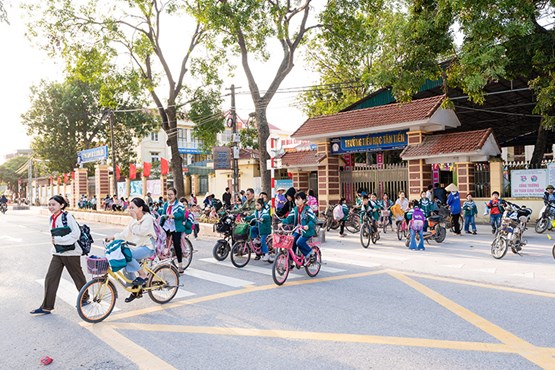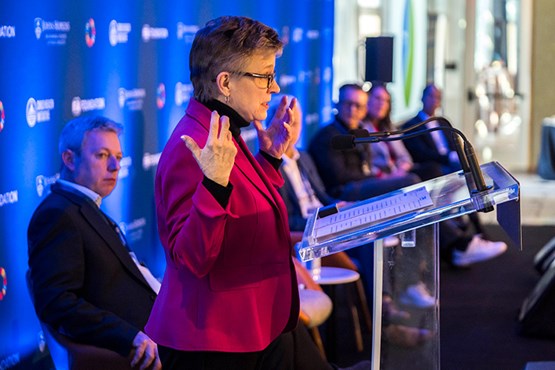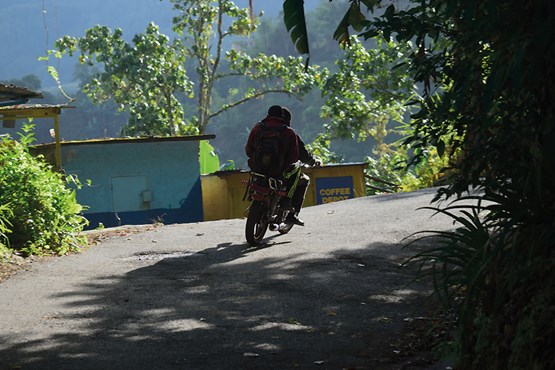FIA Foundation presents road safety financing agenda to global experts
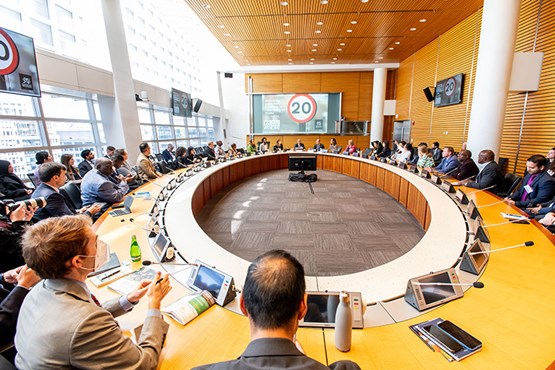
The FIA Foundation has joined leading experts in sustainable transportation and road safety gathered at the World Bank to focus on the need to scale-up financing to address road traffic injury.
At the Transforming Transportation conference in Washington DC on 20 March, the FIA Foundation presented a new advocacy agenda on stepping up financing and action on road safety through to 2030.
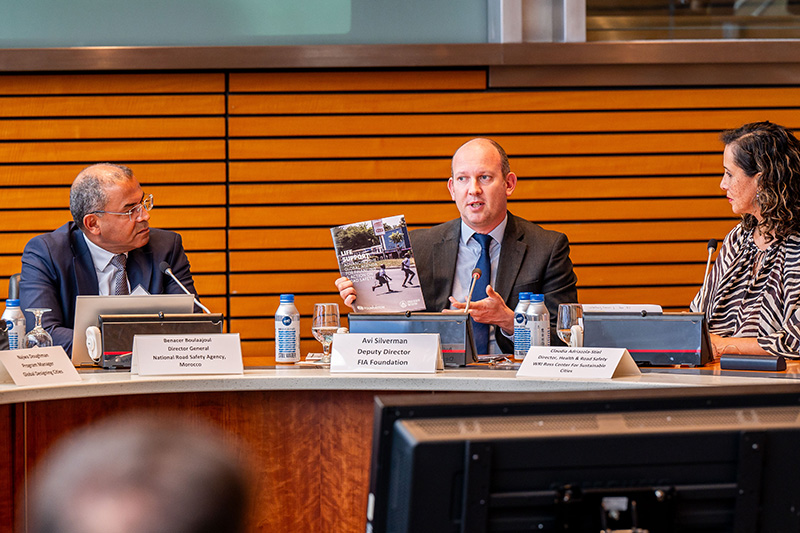
The FIA Foundation outlined priorities for road safety financing in a session organised by the World Resources Institute with fellow participants including representatives from the Government of Morocco, the Government of Albania, the World Bank and the Global Coalition of Youth for Road Safety.
The Foundation presented ‘Life Support: Advancing the Global Agenda for Financing & Action on Road Safety’. It sets out how action is needed in four main areas: increasing the levels of finance; raising Government demand and providing capacity; scaling-up safe system solutions; integrating funding streams for road safety, sustainable transport and climate, with a particular emphasis on support for active mobility.
Transforming Transportation brought together more than 1,000 transport and finance experts at World Bank Headquarters in Washington DC to explore how to mobilise resources and investment for sustainable transportation. Co-hosted by the World Bank and WRI Ross Center for Sustainable Cities, the two-day conference explored strategies that cities, countries and investors must pursue to simultaneously close the climate finance gap and develop safer, greener, more accessible and more climate resilient transport systems.
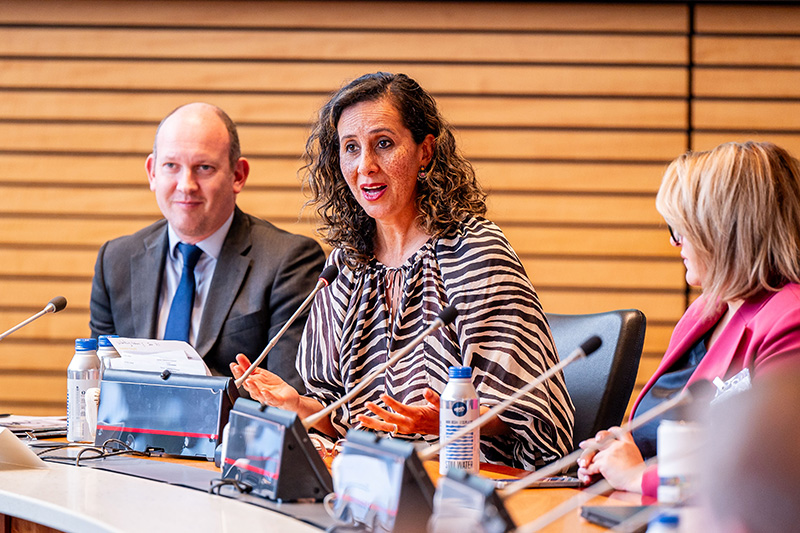
Participating in the Transforming Transportation panel session on investing in road safety, FIA Foundation Deputy Director Avi Silverman said: “In recent years there has been progress on road safety financing. There are strong examples of Governments that have used development bank support to unlock investment in effective road safety programmes to meet national targets. But at the same time, many countries are still struggling to address road traffic injury which remains at epidemic levels. In order to accelerate progress, there needs to be a step change in financing. We need to see catalytic support made more readily available, capacity to deliver increased, and links with climate financing made more effective.”
The ‘Life Support’ agenda calls for new financing to effectively scale-up safe system approaches. These include: assessments on road infrastructure such as those implemented by iRAP, allowing investment to be focused on high risk roads; the ‘Safe Schools Africa’ approach developed by Amend where designing for facilities to protect vulnerable road users are integrated into road infrastructure projects at the outset; and motorcycle helmet programmes which support governments in ensuring a supply of safe helmets in response to increasing rates of motorcycle injuries and fatalities in many countries.
Active mobility should be a particular focus of financing. It is a key area where sources of financing for road safety, sustainable transport and the environment can be effectively linked. Active mobility is vital in reaching climate targets, but it cannot be scaled-up without integrating road safety.
Often, Governments lack capacity to deliver effective programmes in these key areas, which can also hinder efforts to access and deploy financing for road safety. The ‘Life Support’ agenda calls for improved engagement between Governments, cities and sources of catalytic financing, raising the levels of demand for support to deliver strategies at national and city level. A platform bringing together organisations providing safe system expertise, Governments and financing institutions including Multilateral Development Banks, as well as organisations with expertise in active mobility and climate finance, should be established to address this.
Director of Road Safety for the Government of Morocco Benacer Boulaajoul addressed the Transforming Transportation session. He is the lead coordinator of the 4th Global Ministerial on Road Safety to be held in Marrakech in February 2025. He emphasised that for many developing countries the issue of financing is critical. “We also want to engage with Ministers of Finance,” he said. “You can have the best action plans and the best strategy in the world but if you don’t have the funding to implement the action plan, you cannot possibly reach your goals. We want to work with the World Bank and the development banks to come to Marrakech with proposals to help countries reach their goals.”
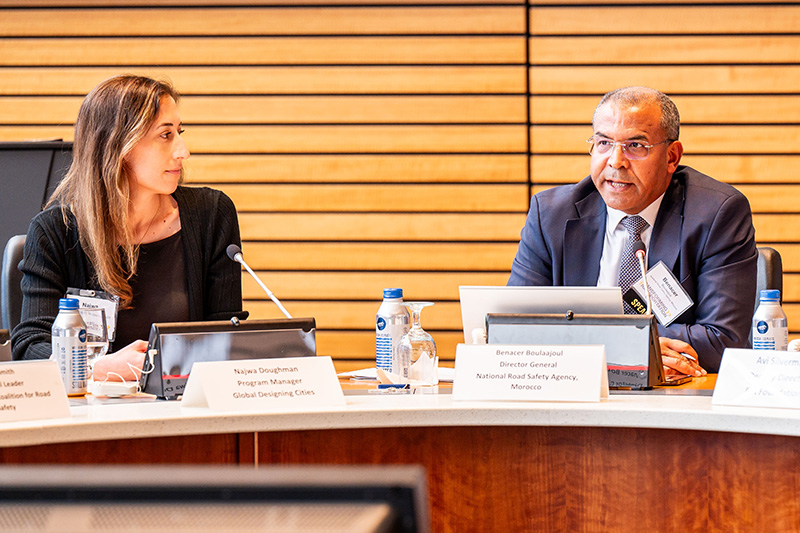
Click here for 'Life Support: Advancing the Global Agenda for Financing & Action on Road Safety'.

